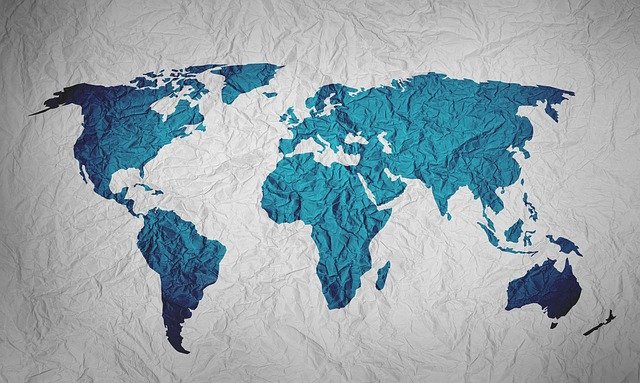Not going to lie, this one almost did me in. I have worked throughout this blogging journey to not avoid the tough Scriptures but to deal with them. And it’s surprising what is tough–it’s not what one would expect. For me, this one is tough.
Messiah
Isaiah 11:5 A belt girding the loins (Ephesians 6:14)
Isaiah 11:10 The Root of Jesse (Romans 15:12)
The first part is obviously about the Messiah Jesus.
11 A shoot will come up from the stump of Jesse;
from his roots a Branch will bear fruit.
2 The Spirit of the Lord will rest on him—
the Spirit of wisdom and of understanding,
the Spirit of counsel and of might,
the Spirit of the knowledge and fear of the Lord—
3 and he will delight in the fear of the Lord.
Although it gets a little more difficult here. Mainly in that he will “strike the earth with the rod of his mouth; with the breath of his lips he will slay the wicked.” (v. 4).
He will not judge by what he sees with his eyes,
or decide by what he hears with his ears;
4 but with righteousness he will judge the needy,
with justice he will give decisions for the poor of the earth.
He will strike the earth with the rod of his mouth;
with the breath of his lips he will slay the wicked.
5 Righteousness will be his belt
and faithfulness the sash around his waist.
The part that trips me up the most is:
“He will strike the land with discipline from His mouth, and He will kill the wicked with a command from his lips” (v. 4).
Further research sees that the early Rabbinic tradition was to interpret this in light of the destruction of the anti-Christ:
“And then the lawless one will be revealed, whom the Lord will consume with the breath of His mouth and destroy with the brightness of His coming” (2 Thess 2:8).
For me that makes more sense. Not a general killing of the wicked but of the lawless one. Although there is this Scripture that talk about Jesus judging:
The wolf will live with the lamb,
the leopard will lie down with the goat,
the calf and the lion and the yearling together;
and a little child will lead them.
7 The cow will feed with the bear,
their young will lie down together,
and the lion will eat straw like the ox.
8 The infant will play near the cobra’s den,
and the young child will put its hand into the viper’s nest.
9 They will neither harm nor destroy
on all my holy mountain,
for the earth will be filled with the knowledge of the Lord
as the waters cover the sea.
It really is painting a picture of peace. Warring animals will no longer war against each other, nor will they eat each other (v. 7). Even a child will play with the cobra. So whether this is figurative or literal, it is clearly painting a picture of extraordinary peace that comes through all the earth.
It seems to me that from v. 3-9 that it is the future kingdom. It is a kingdom where there is extraordinary righteousness and justice, peace, and judgment against wickedness, whether that is the antichrist or all that is wicked.
I guess what trips me up on this is the switch. But maybe there is no switch. Maybe it is all about the person of Jesus both now and forevermore.
Gentiles
Now we have a picture of the nations or Gentiles seeking the Lord.
Aliyah
Aliyah, the return of the Jews to their homeland is spoken of her. He will “gather the dispersed of Israel” (v. 12).
Is this still Messianic or is this from deportation to Assyria and Babylon or both?
We know that they were
1) In Egypt, then returned
2) In Assyria for Israel and Babylon for Judah and those in Judah returned (lost tribes of Israel in Assyria is still a mystery)
3) Then were scattered in AD 70 when Titus sacked Jerusalem but have been returning to their homeland since 1947.
So again, is Isaiah talking about when they would return from Babylon? Or is he talking about a great Messianic gathering and return? Or a millenium?
At that time Ephraim and Judah will not be jealous and harass each other. There would be peace between them ans safety from their enemies. And the barriers that hinder people returning would be removed.
They will swoop down on the slopes of Philistia to the west;
together they will plunder the people to the east.
They will subdue Edom and Moab,
and the Ammonites will be subject to them.
15 The Lord will dry up
the gulf of the Egyptian sea;
with a scorching wind he will sweep his hand
over the Euphrates River.
He will break it up into seven streams
so that anyone can cross over in sandals.
16 There will be a highway for the remnant of his people
that is left from Assyria,
as there was for Israel
when they came up from Egypt.
This last section is a mystery to me also, except that clearly it seems to indicate that the people of God, or perhaps Israel would have power over their enemies. And that just like the Lord cleared the way for Israel in Egypt to return home, he will once again clear the path for the dispersed Jews of the world to return home.
I’m not happy with this and feel like I need to come back and dwell on this more. It would be nice to just take this easy explanation and forget about it, but I do want more understanding than I currently have.
But alas if I don’t move forward, I will be stuck. In reality, the interpretations here greatly depend on your millenial view. And that’s where I think it is not so tightly wrapped up as so some would think.



